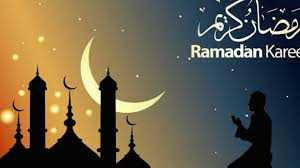
The Ramadan moon was not sighted in Jammu and Kashmir on Friday and the first Ramadan fast would be observed on Sunday (March 2).
J&K Grand Mufti Mufti Nasir-ul-Islam said no testimony was received about the moon’s sighting from across J&K today.
He said the first day of fasting will be on Sunday.
Earlier, this month he had constituted a moon-sighting committee for J&K.
As per Islamic tradition, Ramadan begins with the sighting of the crescent moon.
Since the moon was not visible on Friday, the holy month will commence Saturday evening with the sighting of the moon, marking the start of fasting from Sunday.
Muslims worldwide are preparing to welcome the holiest month of the Islamic calendar which begins with the sighting of the crescent moon.
Ramadan holds deep religious significance for Muslims, being the holiest month in the Islamic calendar. During this period, Muslims fast from dawn to sunset and engage in prayer, self-discipline, and charity.
Throughout Ramadan, Muslim begin their day with Suhoor (pre-dawn meal) and refrain from eating or drinking until Iftar (breaking of the fast at sunset).
Beyond physical discipline, the month is a time for spiritual reflection, increased prayers (namaz), and acts of generosity. The holy month concludes with Eid-ul-Fitr, a joyous celebration that follows the sighting of the new moon.
Ramadan fasting is considered to be obligatory for Muslims.
The month of Ramadan is divided into three parts. The first 10 days are called 'Rahmat', which symbolizes Allah's mercy and kindness. The second 10 days are 'Barkat', which symbolises prosperity and blessings. The last 10 days are 'Magfirat', which is considered to be the time of forgiveness of sins and repentance.
The Ramadan moon was not sighted in Jammu and Kashmir on Friday and the first Ramadan fast would be observed on Sunday (March 2).
J&K Grand Mufti Mufti Nasir-ul-Islam said no testimony was received about the moon’s sighting from across J&K today.
He said the first day of fasting will be on Sunday.
Earlier, this month he had constituted a moon-sighting committee for J&K.
As per Islamic tradition, Ramadan begins with the sighting of the crescent moon.
Since the moon was not visible on Friday, the holy month will commence Saturday evening with the sighting of the moon, marking the start of fasting from Sunday.
Muslims worldwide are preparing to welcome the holiest month of the Islamic calendar which begins with the sighting of the crescent moon.
Ramadan holds deep religious significance for Muslims, being the holiest month in the Islamic calendar. During this period, Muslims fast from dawn to sunset and engage in prayer, self-discipline, and charity.
Throughout Ramadan, Muslim begin their day with Suhoor (pre-dawn meal) and refrain from eating or drinking until Iftar (breaking of the fast at sunset).
Beyond physical discipline, the month is a time for spiritual reflection, increased prayers (namaz), and acts of generosity. The holy month concludes with Eid-ul-Fitr, a joyous celebration that follows the sighting of the new moon.
Ramadan fasting is considered to be obligatory for Muslims.
The month of Ramadan is divided into three parts. The first 10 days are called 'Rahmat', which symbolizes Allah's mercy and kindness. The second 10 days are 'Barkat', which symbolises prosperity and blessings. The last 10 days are 'Magfirat', which is considered to be the time of forgiveness of sins and repentance.
© Copyright 2023 brighterkashmir.com All Rights Reserved. Quantum Technologies